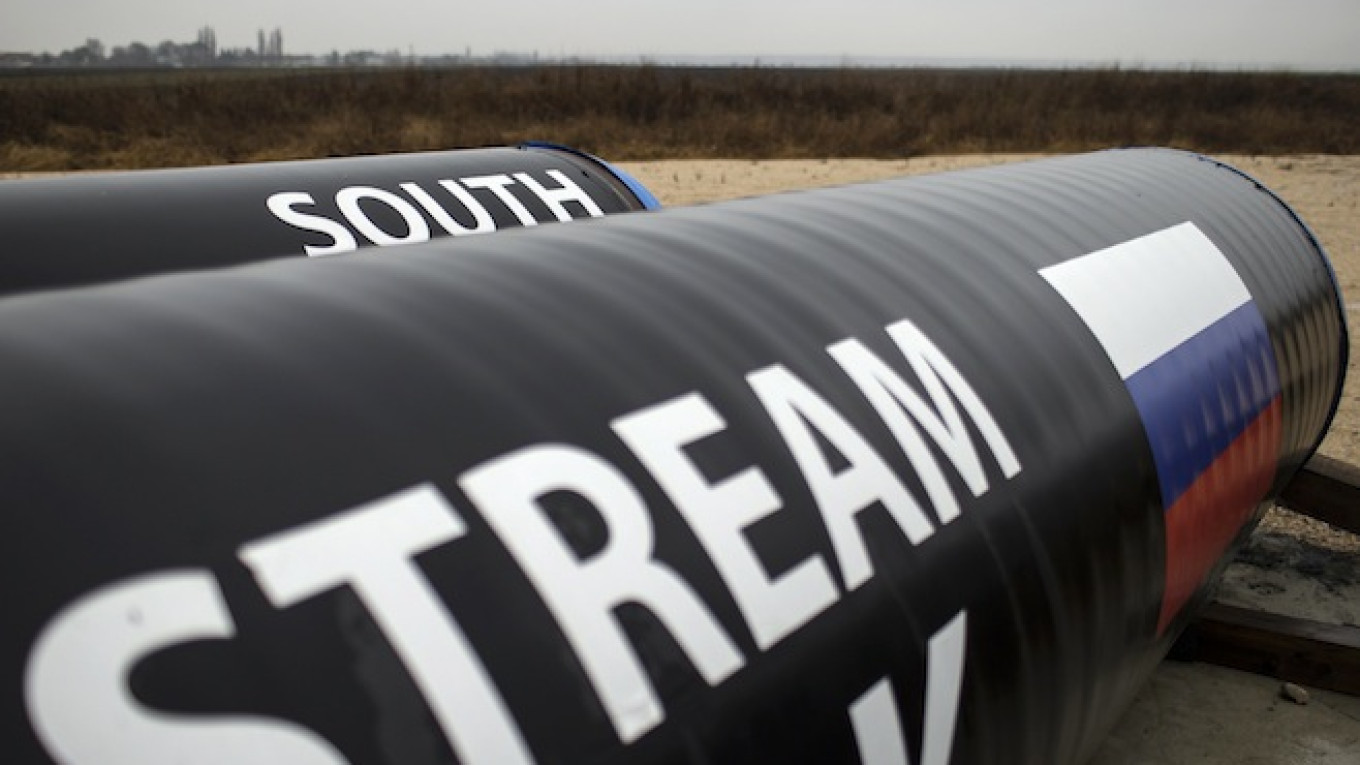As recently as Nov. 21, the Gazprom subsidiary tasked with building the Serbian leg of Russia's South Stream gas pipeline issued a call for mechanics, builders and welders.
Branko Tasevski was among dozens of businessmen hoping to get a contract for his Veco Welding Company in the northern city of Zrenjanin, near the planned path of the 422-kilometer stretch of the pipeline.
South Stream represented the biggest infrastructure investment in Serbia in the almost 15 years since the former Yugoslav republic emerged from international isolation with the fall of late strongman Slobodan Milosevic.
So Tasevski was disappointed when, just 10 days later, President Vladimir Putin announced in Istanbul that the project was off, doomed by a legal dispute with the European Union that has its roots in a deepening standoff between the West and Russia.
The cancellation deprives southeastern Europe of an alternative supply of energy to the disruption-prone route through Ukraine, but there was a financial cost too. States along the route with fragile economies were banking on a big payday from construction, shipment fees and cheaper gas.
For Serbia, which has long touted its ties with fellow Orthodox Christian nation Russia, the blow is particularly bitter.
In 2008, the country sold a majority stake in its state oil and gas company, NIS, to Russia's Gazprom in what the government said at the time was quid pro quo for Moscow routing South Stream through Serbia.
Gazprom paid what analysts said was a bargain 400 million euros for the stake in NIS, for two refineries, a network of petrol stations, exploration rights and other benefits.
The accord, however, included no explicit commitment that South Stream would indeed be built.
Serbian Infrastructure Minister Zorana Mihajlovic, an energy expert, said: "The Serbian side did not protect its interests enough. The Russian side came to this market knowing clearly what it wanted, and got what it wanted; we should learn from them."
Prime Minister Aleksandar Vucic, who expressed surprise at learning of South Stream's cancellation from news reports, spoke with his Russian counterpart, Dmitry Medvedev on Monday, and appeared to suggest Serbia expected some kind of compensation.
Mihajlovic said Serbia's construction sector had directly lost out on 300 million euros-worth of work.
In an interview, she estimated that the project would have raised gross domestic product by at least two percent. Taken together with the lost opportunity of cheaper gas supplies, "we're talking about hundreds of millions of euros [in lost earnings,] some say 700 million."
In Bulgaria, former energy minister Rumen Ovcharov estimated the loss in shipment fees for Bulgaria at $600 million per year. The investment in building the Bulgarian leg was forecast at 3.5-4 billion euros.
Hungary's section of the pipeline would have run some 300 kilometers. "The costs of the construction would have totaled several tens of billions of forints, roughly around 100 billion HUF ($403-604 million)," said Attila Holoda, managing director of energy consultancy firm Aurora Energy Kft in Hungary.
In Slovenia, the newspaper Delo reported on Friday that state-owned Plinovodi, which manages Slovenia's gas infrastructure and says it has spent 150,000 euros in preparation for South Stream, would seek compensation from Gazprom for the project's cancellation.
A Message from The Moscow Times:
Dear readers,
We are facing unprecedented challenges. Russia's Prosecutor General's Office has designated The Moscow Times as an "undesirable" organization, criminalizing our work and putting our staff at risk of prosecution. This follows our earlier unjust labeling as a "foreign agent."
These actions are direct attempts to silence independent journalism in Russia. The authorities claim our work "discredits the decisions of the Russian leadership." We see things differently: we strive to provide accurate, unbiased reporting on Russia.
We, the journalists of The Moscow Times, refuse to be silenced. But to continue our work, we need your help.
Your support, no matter how small, makes a world of difference. If you can, please support us monthly starting from just $2. It's quick to set up, and every contribution makes a significant impact.
By supporting The Moscow Times, you're defending open, independent journalism in the face of repression. Thank you for standing with us.
Remind me later.


